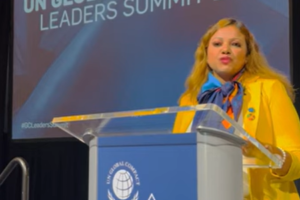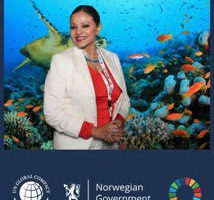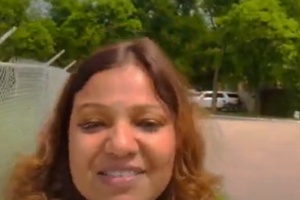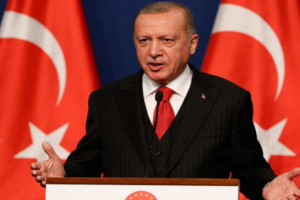Workable proposals or non-workable proposals? That’s the EU’s question.
The prime minister says he has delivered a “constructive and reasonable” plan to Brussels, containing UK compromises on finding alternative arrangements to the Irish backstop in a Brexit deal.
Now it’s the EU’s turn, he reasons.
So what compromises, if any, is the EU now willing to make?
Well, Brussels’ mantra since Boris Johnson became prime minister has been: we already compromised in our backstop agreement with Theresa May, if the UK’s new PM wants to rip up that agreement and start again, then the onus is on him, not the EU, to find an alternative solution.
The EU has said it needed concrete, legally operable, realistic UK proposals on the table before it could entertain re-thinking its position.
UK proposals have now been delivered but the EU suspicion is that they are neither realistic, nor legally operable as they stand.
And before anyone objects that “the EU was always going to pour cold water on the PM’s offer, whatever he said!” let me tell you, it’s not all gloom.
Before the EU read the prime minister’s offer, many predicted it would confirm their suspicion that his focus was on a domestic UK audience and on an upcoming general election – not on engaging with the EU.
But senior diplomats told me on Wednesday night that some of Boris Johnson’s proposals were “better than expected”.
“His offer on regulatory alignment (keeping Northern Ireland tied to EU rules on goods) was great, as was the tone of his covering letter to Jean-Claude Juncker,” one northern European diplomat told me. “All very professional. I believe he wants a deal. That it wasn’t just rhetoric.”
Another hit with much of the EU audience was Boris Johnson’s recognition that the backstop and any alternative arrangements to replace it would be specific to the island of Ireland and the delicate balance needed there to protect the Good Friday Agreement.
The prime minister promised the UK would not seek to mirror advantages in that special arrangement in its other post-Brexit borders with the EU – such as the Dover-Calais crossing.
But diplomats also echoed the concerns of the EU’s chief Brexit negotiator, Michel Barnier, who commented – tight-lipped – that while “there’s improvement… we’re not there yet”.
Mr Barnier’s team says it will have many detailed questions for the government on Thursday, after closer scrutiny of the UK offer.
In fact, Boris Johnson’s proposals raise a number of concerns for the EU, including a question mark over the regulatory alignment that the northern European diplomat so praised.
You see, the prime minister calls for Northern Ireland’s power-sharing government, not currently sitting, but which includes the ultra-unionist DUP party, to have a veto over the alignment.
This means they could refuse to renew the agreement or even stop it ever kicking in.
But the big flashing red light for the EU concerns customs arrangements.
The EU thinks the prime minister’s proposals would leave the single market exposed after Brexit (primarily because of smuggling risks but also VAT fraud) and could also pose a threat to the Northern Ireland peace process.
The EU, led by Dublin, has ruled out any customs checks on the island of Ireland; any procedures that interrupt the all-Ireland economy. Another EU criticism is that the UK proposal lacks detail on how customs checks would be carried out, even away from the border between Northern Ireland and the Irish Republic.
A high-level EU diplomat suggested to me that while it might eventually allow a time limit to the backstop/alternative arrangements (if Dublin could be persuaded), Brussels would need Boris Johnson to budge on customs.
In the meantime, don’t expect the EU to rush forward to crush the prime minister’s proposals, because:
A) EU leaders want a deal
B) If there isn’t going to be a deal, the EU doesn’t want to be seen to be slamming the door in the UK’s face.
European Commission chief Jean-Claude Juncker was quick to welcome the arrival of the UK proposals in Brussels on Wednesday. He expressed concern over some elements of the paper but also immediately volunteered that the EU would be available night and day for further negotiations.
His intention: to put the ball back in the UK’s court.
While the prime minister appears to have walked back from his declared “take it or leave it” approach – instead declaring that he would look carefully at the response – the EU questions how flexible he can or will want to be in further negotiations, especially with a general election looming.
Brussels is keen to clear up a constant EU confusion since Boris Johnson became prime minister: should the EU believe it’s in real negotiations with the government, or are the talks ultimately a backdrop to an election campaign for the prime minister?
“All eyes will now be on [Brexit Secretary] Steve Barclay,” a senior EU source told me. “He’s the one who talks to the European Commission and he’s the tough one.”
There are diplomats who suggest that it’s almost as if Boris Johnson and the Brexit secretary have a good cop, bad cop thing going when it comes to talking to the EU.
Before the EU thinks of offering compromises – and Ireland is key here – it has to believe negotiations are sincere and that an acceptable agreement can be found.
Right now the differences between the two sides remain huge. There are also questions marks over whether seething MPs in Westminster would approve a “Boris-engineered deal” and also whether the European Parliament would give the go-ahead. MEPs are scheduled to outline their opposition to the Johnson proposals on Thursday.
No-one I speak to on the EU side thinks a new Brexit deal can be done in time for the leaders’ summit in mid-October. Few think it possible even by the end of the month.
Ultimately the EU doesn’t buy the prime minister’s line that it’s either this deal or no deal.
Brussels believes another extension is the most likely new chapter in the ongoing Brexit process.
Source: BBC





















